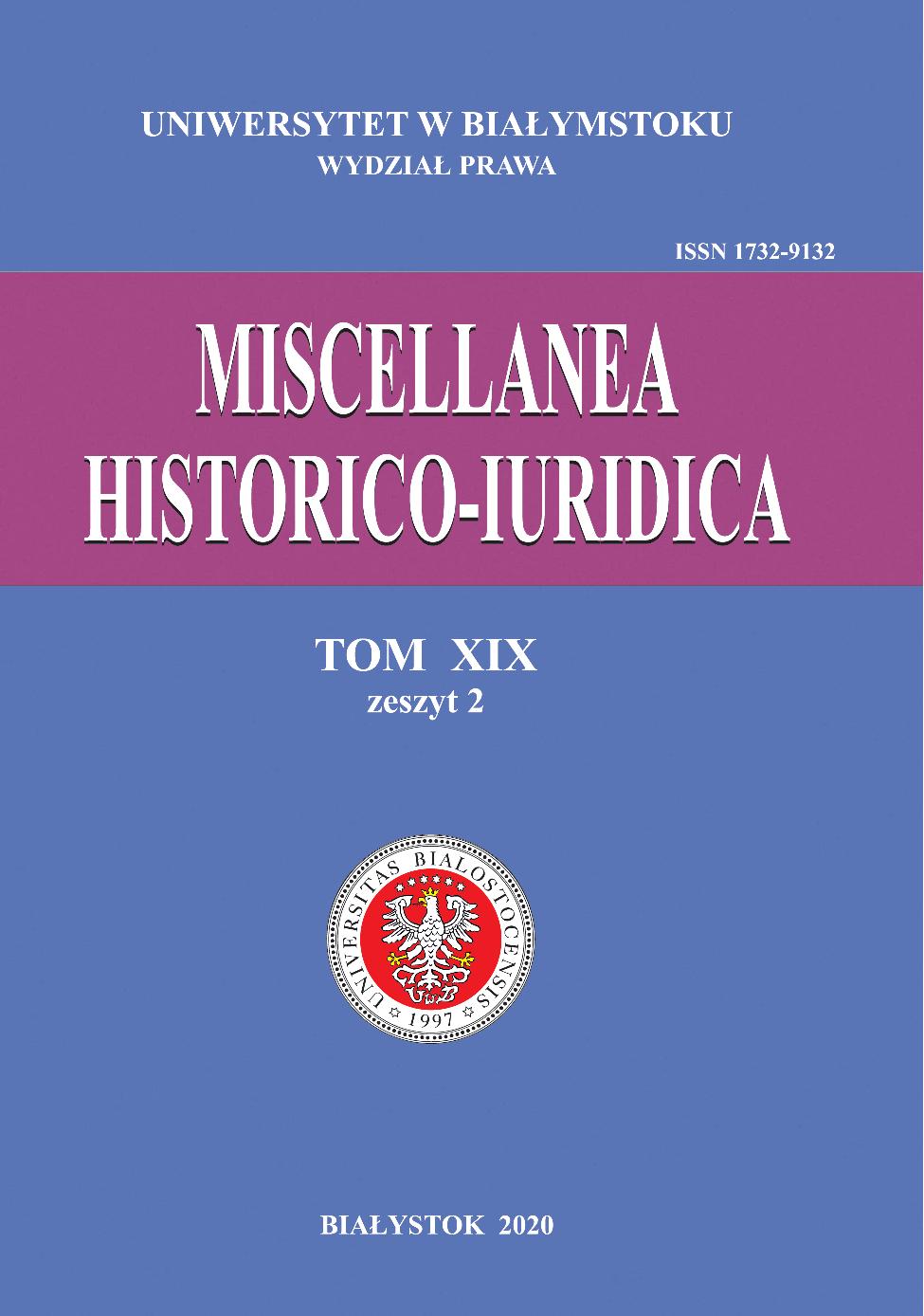Budowa administracji skarbowej w pierwszych latach Polski międzywojennej
Building the fiscal administration in the first years of interwar Poland
Author(s): Andrzej WitkowskiSubject(s): History, Law, Constitution, Jurisprudence, Economic history, Recent History (1900 till today), Interwar Period (1920 - 1939), Law on Economics
Published by: Wydawnictwo Uniwersytetu w Białymstoku
Keywords: tax administration; tax chambers; fiscal and tax offices; Ministry of the Treasury; interwar Poland
Summary/Abstract: The purpose of this article is to present the process of building fiscal administration in the first years of interwar Poland, which ended with the adoption and gradual extension of the territorial scope of the binding law of July 31, 1919, on the temporary organization of tax authorities and offices. It replaced the post-partition solutions, which were initially subject to temporary changes. Considerations concerning the organization and scope of activities of the fiscal administration are complemented by comments illustrating the efforts of the Ministry of the Treasury to employ and train tax officials and candidates for tax services. The stated comments and observations were made on the basis of an analysis of legal acts, sources allowing to reconstruct the course of legislative processes (The Lower House of Polish Parliament [Sejm] documents and stenographic reports from the Lower House [Sejm] sessions) and literature. They confirm that the Act of July 31, 1919, adopted a structure based on the following principles: 1/ separation of fiscal authorities and offices from general administration, 2/ three-stage system of fiscal authorities (Ministry of the Treasury, tax chambers, tax offices), 3/ equal treatment of administration of direct and indirect taxes, as evidenced by their organizational unification in tax chambers, while maintaining the separation only in the authorities of the first instance (tax and fiscal offices; excise and state monopoly offices). The adopted fiscal administration system met the increasing role of direct taxes, which required the building of institutions for efficient calculation and collection of those taxes. However, the management of customs was separated from the competence of the tax chambers.
Journal: Miscellanea Historico-Iuridica
- Issue Year: 19/2020
- Issue No: 2
- Page Range: 319-348
- Page Count: 30
- Language: Polish

